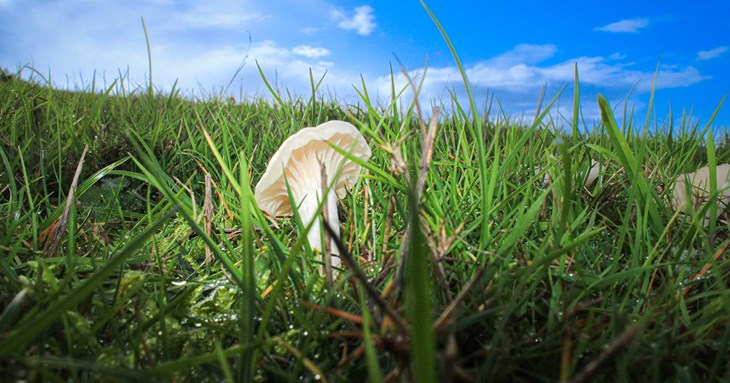Exeter ‘habitat bank’ offers biodiversity benefits for city
Published: 5 February 2024

An area of farmland in Exeter has become one of the first ‘habitat banks’ in the county, offering biodiversity benefits to local wildlife.
And now the initiative is in place, other landowners are being encouraged to come forward and create their own habitat banks.
Exeter City Council and Devon County Council legally secured Exeter’s first ‘habitat bank’ on private land. Located within the Duryard Valley Park, the local authorities worked closely with the Devon-based company Biogains Ltd on the ground-breaking initiative.
The ‘habitat bank’ is just the second of its kind in the county (after Plymouth) but the first on privately-owned land in Devon.
As part of the agreement, the 3.2 hectare site will be enhanced predominantly into lowland meadow which is a national priority habitat. Plus there will be approximately 260m of new and enhanced species-rich hedgerow and some small areas of scrub.
Cllr Emma Morse, Exeter City Council’s Lead Councillor for City Development, welcomed the agreement.
“I hope this is the first of many and we start to see habitat banks springing up across the city as landowners recognise the benefits to local biodiversity and society in general.”
The agreement comes in preparation for the introduction of Biodiversity Net Gain (BNG) requiring developers to deliver a minimum 10% net gain for biodiversity for all non-exempt major and minor planning applications from 12 February and 1 April respectively.
Under the new regulations, a developer must not start construction until they have demonstrated to the Local Planning Authority that the biodiversity value of the habitats for the overall proposals will be 10% greater than the biodiversity value of the habitats on the application site before it was developed.
Developers must first look to deliver the 10% entirely on the development site, but this will not always be possible and one option they then have is to purchase the necessary biodiversity units. This is where habitat banks come in.
Habitat Banks are essentially places where landowners or tenants are financially incentivised to create and manage habitats on their land for the benefit of biodiversity, but unlike traditional land management schemes that tend to rely on public money, they are paid for directly by developers. They are set to be fundamental in delivering BNG, and they have the potential to deliver significant benefits for biodiversity locally.
Tom Whitlock, Principal Officer for Devon County Council, said: “There is a commitment across Devon local planning authorities to have a collaborative approach to Biodiversity Net Gain.
“A countywide local authority steering group has been established, and each council keen to explore opportunities for further habitat bank registration. It is extremely exciting to have the first private habitat bank registered in Devon, and we would like to encourage other interested providers to get in contact with their local council.”
Landowners or land manager within Exeter or elsewhere in Devon who are interested in creating their own habitat banks should contact their local council.
